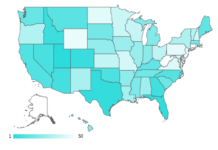![]() Applications are being accepted again today for the Paycheck Protection Program (PPP) after the initial $349 billion of funding was exhausted in less than two weeks. On Friday, another $310 billion was added to the PPP program, including $60 billion set aside specifically for small lenders. But many fear this new influx of money will also run short with the hundreds of thousands of applications still pending.
Applications are being accepted again today for the Paycheck Protection Program (PPP) after the initial $349 billion of funding was exhausted in less than two weeks. On Friday, another $310 billion was added to the PPP program, including $60 billion set aside specifically for small lenders. But many fear this new influx of money will also run short with the hundreds of thousands of applications still pending.
“These additional funds will provide badly needed relief for more small businesses on the brink of closure,” said Suzanne Clark, President, U.S. Chamber of Commerce. “Unfortunately, we anticipate these new funds will be exhausted quickly. Congress must start working now on bipartisan solutions to ensure these programs do not lapse again. Small businesses and the families and communities they support are counting on these critical relief programs to help them survive the economic shutdown and get on the path to recovery.”
One in four small businesses are on the brink of permanent closure, according to the Small Business Coronavirus Impact Poll released by the Chamber and MetLife. When asked what proposals might offer the most relief, 56% of small business reported direct cash payments to Americans would be the most helpful form of aid from the government, 30% said loans and financial aid, and 21% indicated suspending payroll taxes.
In a letter today to Treasury Secretary Steven Mnuchin and Small Business Administrator Jovita Carranza, 2o Democratic and two Independent Senators “urged the Trump administration to publicly disclose the measures it will put in place to make sure loans are not ‘unjustly enriching’ companies in less dire financial need,” reported CNBC.
Various new outlets have reported that some of the first round of PPP funds went to large publicly traded companies, shouldering out small business owners. Some of those large companies have since said they will return the PPP loans and the administration is asking for those funds back by May 7, according to Politico.
To help small businesses, independent contractors, and gig economy workers prepare to file for a coronavirus relief loan under the Coronavirus Aid, Relief, and Economic Security (CARES) Act, the U.S. Chamber’s Save Small Business Initiative has issued a number of guides available here.
The Chamber is also hosting a multitude of weekly virtual events to help businesses address coronavirus challenges. In partnership with Inc., National Small Business Town Halls will be held every Friday to help small businesses navigate financial aid programs, like the CARES Act, and answer questions. Workshop Wednesdays are discussions designed specifically to help learn new approaches to keep business going.
Michigan OKs Lawn Work
 In other COVID-19 news, lawn and landscape workers in Michigan can finally get back to work. On Friday, Governor Whitmer issued Executive Order 2020-59 which, while extending the state’s previous “Stay Safe, Stay Home” order, now allows an exemption for “workers for garden stores, nurseries, and lawn care, pest control, and landscaping operations, subject to the enhanced social-distancing rules.”
In other COVID-19 news, lawn and landscape workers in Michigan can finally get back to work. On Friday, Governor Whitmer issued Executive Order 2020-59 which, while extending the state’s previous “Stay Safe, Stay Home” order, now allows an exemption for “workers for garden stores, nurseries, and lawn care, pest control, and landscaping operations, subject to the enhanced social-distancing rules.”
The state’s original Executive Order 2020-42 banned such work, one of the only states in the U.S. to do so. As a result, the Michigan Nursery & Landscape Association (MNLA) had filed suit earlier last week against the state.
“We are pleased to report that through our collective efforts our industry has been exempted in Executive Order No. 2020-59 and we are allowed to go back to work.” stated the MNLA on its site. It continues, “REMEMBER: We are still in a pandemic and we must be diligent in following safety protocols in order to keep everyone in our industry safe. If you cannot work safely, then please do not go back to work. Working is now a privilege that we must not take lightly or it will be taken away. We are still under a Stay-at-Home Order, which means that people are home and are going to be watching everything that goes on in their neighborhoods. It is important that under this scrutiny our industry as a collective whole is showing that we are following the safety protocols and are keeping our employees and customers safe. Let’s start a peer-to-peer support group and whenever possible let’s encourage each other to follow the rules and implement safety protocols.” For more guidelines on what Michigan landscapers need to know to get back to work, visit here.











![[VIDEO] Dickies®: Discover Workwear That’s Anything But Uniform](https://turfmagazine.com/wp-content/uploads/2023/06/1647663814-4b1a2a7742790a9b1e97a3b963477850192e1d6a9dfba9b07214a77bae25d6e3-d-218x150.jpg)






























![[VIDEO] Dickies®: Discover Workwear That’s Anything But Uniform](https://turfmagazine.com/wp-content/uploads/2023/06/1647663814-4b1a2a7742790a9b1e97a3b963477850192e1d6a9dfba9b07214a77bae25d6e3-d-324x160.jpg)